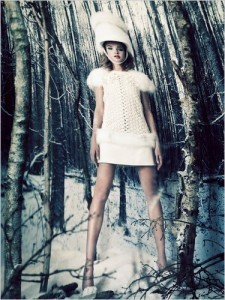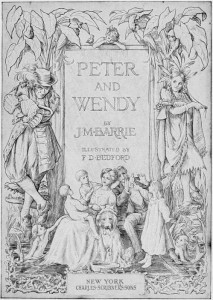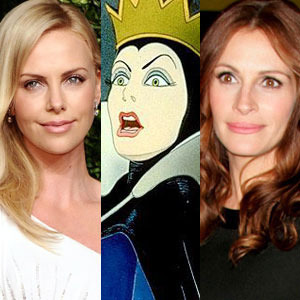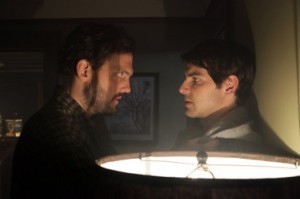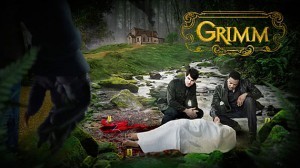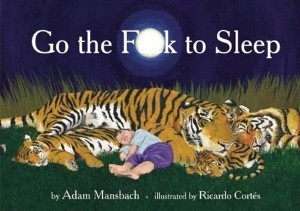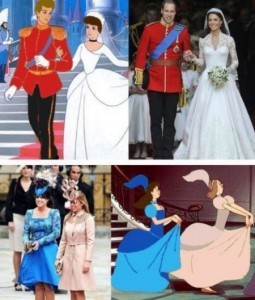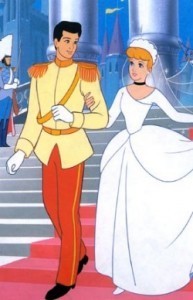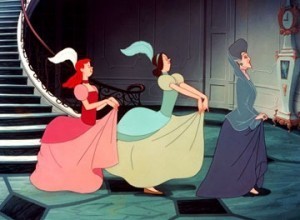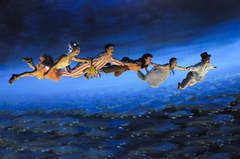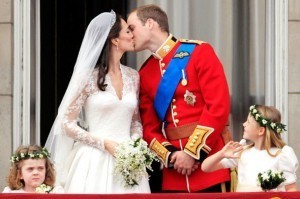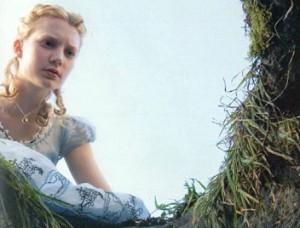Maria Tatar's Blog, page 31
June 7, 2011
Fairy-Tale Philanthropy
Fashion model Natalia Vodianova is raising money to build children's playgrounds in Russia. Her Cinderella story is told in today's New York Times. And now she is playing fairy godmother.
Yet Ms. Vodianova, with a steely character behind the sweet face and child-like body, still believes in Russian fairy tales and fables, with their complex dragons and firebirds.
To mirror that magical reality, the model asked 40 designers to each create a dress for the White Fairy Tale Love Ball, a Russian-inspired fund-raiser that will take place near Paris during the July haute couture season at the Wideville chateau of Valentino and his partner, Giancarlo Giammetti.
http://www.nytimes.com/2011/06/07/fashio…
May 26, 2011
Never land
Harvard's Commencement is today, and the sun is shining on the Class of 2011. Here's my Harvard Crimson valedictory for a wonderful group of seniors.
http://www.thecrimson.com/article/2011/5…
Grown Up and Done For
By Maria Tatar
Published: Thursday, May 26, 2011
"Nothing that happens after we are twelve matters very much," J.M. Barrie wrote nearly a century ago. As the author of "Peter Pan, or the Boy Who Would Not Grow Up" and as a man desperate not to lose his marbles (the glass kind with multi-colored swirls), he was an authority on the challenges of turning into an adult. Once we grow up, Barrie lamented, we are "done for," and he spent a good part of his life mourning the moment when other children made it clear that he was too old for pirate games.
Growing up is hard to do at any time, but especially in a culture where Bob Dylan and other crooners urge us to stay "Forever Young" and shops trumpet names like "Forever 21." In Childhood: Its History, Philosophy, and Literature, a course I have taught for many years now, the most poignant moment in the term comes when I play a sequence from Steven Spielberg's "Hook," a 1991 cinematic sequel to Barrie's "Peter Pan." There is rarely a dry eye in the lecture hall when one of the Lost Boys contemplates the creases in Robin Williams's grown-up face and gently reproaches him with the words: "Peter, you promised never to grow old."
"Hook" never reveals exactly when or why Spielberg's Peter Banning decides to grow up and become a corporate pirate who turns family man. But in "Tuck Everlasting," inspired by Barrie's play, Natalie Babbitt's character makes it clear that remaining forever young can be a real curse: "I want to grow again . . . and change. And if that means I got to move on at the end of it, then I want that, too." Readers of "Peter Pan" will know that Peter's eternal youth comes at the price of memory, along with the cost of love, duty, commitment, and many other weight-bearing words. Neverland may be fun, games, and sport, but it also quickly transforms itself into a Nietzschean dystopia marked by the eternal return of the same. With time, even the "ecstasies innumerable" of Neverland become stale pleasures.
But is the adult world really any better? In a commencement address at Kenyon College, David Foster Wallace famously declared: "You graduating seniors do not yet have any clue what 'day in day out' really means. There happen to be whole, large parts of adult American life that nobody talks about in commencement speeches. One such part involves boredom, routine and petty frustration."
The Harvard bubble is the best insulator I know against the boredom that so tormented Wallace. In my years at this institution, each term has always delivered on the rainbow promise of fresh new ideas and intellectual surprises. Graham Greene may have believed that there is nothing to equal the "excitement and revelation" of our first fourteen years, but he evidently also found university life at Oxford "childish and ostentatious."
As perceptive as David Foster Wallace was in his commencement address, he discounted the boredom, routine, and petty frustration that the most precocious among you have already experienced. Some of you may be ready to leave, not just Neverland but also the bubble that has sheltered you at Harvard.
And so, off you skip now, like the most heartless things (as Barrie would say), ready to navigate and explore terrain full of challenges that no poet, philosopher, or professor can chart for you. Off you go to the trenches of the real world, where you will get religion—that is, find out what you really want from life, what you will worship, and what will be the object of your devotion.
The real world and its inhabitants will badger you constantly about the value of getting and spending. Few will praise the fringe benefits of failure or remind you of the importance of imagination as J.K. Rowling did at Harvard's 2008 Commencement. And almost no one will tell you that the consolations of the imagination are not imaginary consolations.
Many years ago, Mark Twain told the young woman who played Peter Pan onstage in New York how much he admired J.M. Barrie's work. "It is my belief that 'Peter Pan' is a great and refining and uplifting benefaction to this sordid and money-mad age." Somehow I feel sure that Twain understood the importance of levitation and levity, flight and fancy, and lack of gravity and nimbleness, especially after age 12, when life begins for real, pace J.M. Barrie. And so I will simply close with words spoken some years ago at Commencement ceremonies by Jeremy R. Knowles, then Dean of the Faculty: "Soar like the eagles that you are." I have just two words to add to his: Never land.
Maria Tatar chairs the Program in Folklore and Mythology. She is the author of "The Annotated Peter Pan," to be published by W.W. Norton later this year.
May 22, 2011
Snow White Smackdown
Two Snow White films are scheduled for release in June 2012. Kristen Stewart of Twilight fame stars in Snow White and the Huntsman, with Charlize Theron as her mother and Chris Hemsworth as a hunter, distraught by the death of his wife. Johnny Depp, Viggo Mortensen, and Hugh Jackman all turned down the role of the huntsman.
My bet is with The Brothers Grimm: Snow White, directed by Tarsem Singh. Nathan Lane and Robert Emms have just joined Julia Roberts and Armie Hammer (he played the Winklevoss twins in Social Network) for this re-imagining of the class fairy tale, but another critic has already cast his vote with Snow White and the Huntsman.
The Story: Comedy vs. Kick Ass!
Relativity's Snow White—which is supposedly about Snow and her dwarfy pals violently reclaiming the kingdom—is described as a "spirited adventure comedy" (tho sources close to the picture tell us the laughs are kinda few and far between), while Universal's Huntsman takes a much more serious, kickass approach to the series. If you're looking for serious fight sequences and the chance of some steamy scenes between Hemsworth and Stewart, your best bet is the latter.
May 19, 2011
Once upon a Crime
NBC's Grimm is filming its pilot episode in Portland, Oregon, and has made it into the fall 2011 schedule. In the trailer we hear a voice-over: "This is no fairy tale–the stories are real–what they wrote about really happened. You are one of the last Grimms. We have the ability to see what no one else can."
A detective learns that he is descended from the Brothers Grimm and therefore has the ability to identify the monsters and ogres that once menaced the innocent heroes and heroines of fairy tales. It looks like the first episode will, surprise, surprise, take "Little Red Riding Hood" as its point of departure.
Here's more from DreadCentral.com:
Detective Nick Burkhardt (David Giuntoli) thought he was ready for the grim reality of working homicide in Portland, Oregon. That is, until he started to see things…things he couldn't quite explain. Like a gorgeous woman suddenly transforming into a hideous hag or an average Joe turning into a vicious troll. Then, after a panicked visit from his only living relative, Nick discovers the truth about his visions: He's not like everyone else; he's a descendant of an elite group of hunters known as "Grimms" who are charged with stopping the proliferation of supernatural creatures in the world. And so begins his new life journey – albeit a reluctant one at first – as he solves crimes with his partner who knows something about Nick has radically changed but can't quite put his finger on it. Along the way, Nick finds himself unexpectedly getting help on some of the more difficult cases from Monroe (Silas Weir Mitchell), a guy who seems normal at first but is soon revealed to be what you might call a "big bad wolf." Literally!
The Truth about Bedtime Stories
Freud tells us that jokes are never really innocent and that they are designed to serve aggressive or self-defensive purposes. There's a little bit of both in Adam Mansbach's bedtime story for adults trying to get children to sleep.
Samantha Murphy writes: TechNewsDaily spoke with Mansbach and illustrator Ricardo Cortes about how social media shot "Go the F**k to Sleep" (Akashic Books, 2011) to No. 1 on Amazon's best seller list a month ahead of its publication and how the book's message has captured the hearts of parents with a sense of humor everywhere.
http://www.technewsdaily.com/social-medi…
Here's a sample verse:
The cats nestle close to their kittens now.
The lambs have laid down with the sheep.
You're cozy and warm in your bed, my dear
Please go the f**k sleep.
Shades of "Down will come baby, cradle, and all." In a study of lullabies, Nicholas Tucker concluded that some of the melodies sung to children over the centuries were "exercises in controlled hatred." One British lullaby warns a "squalling baby" that Bonaparte will "beat you, beat you, beat you, / And he'll beat you all to pap. / And he'll eat you, eat you, eat you / Every morsel snap, snap, snap."
Why does the word "desperate" come up so often when parents describe the experience of reading their children to sleep?
Cinderella Wedding
Does life imitate art? Not exactly. But clever swapping of hair and dress/uniform colors is uncomfortably close to reality.
May 16, 2011
Peter Pan in-the-round
The threesixty Theatre production of "Peter Pan" is now in Chicago. It features "an ambitious hybrid of live theater, aerial arts, puppetry, and supremely advanced computer-generated visuals." The project was launched in London and is now on a US tour. The show seems to have solved the Spiderman problem–kids stay in the harness and the computer images move!
Here's an excerpt from a review of the show in the Chicago Sun Times:
Above all there is a breathtaking flight to Neverland that carries the audience on a vertiginous journey over London rooftops, through the Marble Arch, along the River Thames and high into the clouds before a rough landing on a Caribbean island where a pirate ship hovers.
If something is lost along the way in all this it is the clarity of the storytelling. For as it happens, Barrie's story (and it's all there in Tanya Ronder's adaptation), speaks to children on one level, and adults on another, and it is a great deal more complicated than it appears on the surface. Unquestionably, the sheer sensation of flight has an endless allure, and there are other stunning sensations here, too, including being under water, on a pirate ship, or being surrounded by the dense vegetation of a tropical forest. But the intimacy and clarity of the human relationships, which is what ultimately makes any "Peter Pan" fully tick, sometimes gets blurred in this elaborate production.
I appreciate the reviewer's understanding of the story's complexities. My Annotated Peter Pan will be published by W.W. Norton in October 2011–just in time for the 100th anniversary of Peter and Wendy. Writing that volume led me to discover just how weighty, packed, and fiendishly complicated the story really is. And the backstory about Barrie and the five Llewelyn Davies boys is equally compelling.
April 29, 2011
Fairy tales can come true . . . let's hope not
There is nothing like a royal wedding to revive faith in fairy tales. Today's ceremony enacted in symbolic terms everything we imagine to constitute happily ever after. The royal groom, the bride of humble origins (well, sort of), the lengthy bridal test, and the magnetic beauty of the bride–it's all there. Along with a back story about what happily ever after meant for a royal wedding that took place not once upon a time, but almost three decades ago. There we had the evil queen, the tortured princess, and the unfaithful husband giving us more of a taste of what happens in the fairy tales told long ago. For that reason, I can't help but feel some anxiety about the constant repetition in the news of the term "fairy-tale wedding." Let's hope that Kate and William have lives that are anything but a fairy tale.
Goodnight Moon for the College Crowd
Harvard's Gregory Mankiw, Thomas Dingman, and David Ager read "this fabulous bedtime story" in a video designed to put their students to sleep. I can imagine that, with a few changes in words and images, the story could be adapted for the college crowd. Goodnight book full of mush . . . .
April 22, 2011
Pictures and Conversations in Wonderland
Lawrence Downes reports on Apple's virtual bookstore, with its animated version of Alice's Adventures in Wonderland, designed to keep child readers from getting "sleepy and stupid." He raises some interesting questions about the migration of classic children's stories into digital media. These days, children have almost as much, if not more, exposure to media as adults. He cites a study from the Joan Ganz Cooney Center on children's media:
It was hard to give conclusive answers about children's digital media, except that it's vast. The report, a compilation of seven studies, found children swimming in a media ocean. Each day, it said, schoolchildren "pack almost 8 hours of media exposure into 5.5 hours of time" because they multitask with video games, music players and TV.
http://www.nytimes.com/2011/04/22/opinio…
On a recent flight to Los Angeles, I witnessed a very unhappy three-year-old girl tortured by an e-book. Her mother, desperate to keep her quiet, kept thrusting the animated device on her lap, with the hope that the kinetic energy of the book would distract her. Sometimes less is more. When it comes to picture books, and to Alice in Wonderland for that matter, the static page has real power to engage and to draw us into Elsewhere. Still, I'm willing to try out Apple's Alice in Wonderland, and I'm just hoping it's not cluttered with merchandising platforms. If it is, I'll stick to Martin Gardner's Annotated Alice in Wonderland.
Here's Apple's irresistible sales pitch:
http://www.apple.com/ipad/built-in-apps/…
Maria Tatar's Blog
- Maria Tatar's profile
- 316 followers


